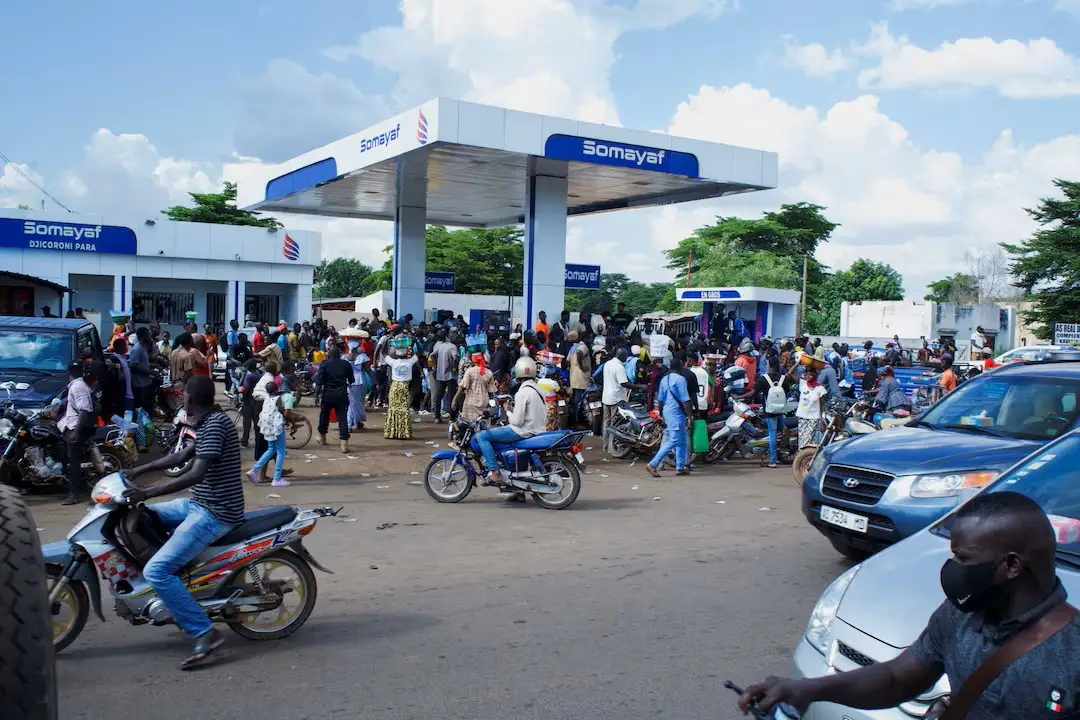
Mali has moved decisively to address a severe fuel shortage that has plagued the country in recent weeks, causing long queues at gas stations and delaying deliveries to major cities, including the capital, Bamako.
The disruption has been largely attributed to repeated attacks on fuel convoys by armed groups linked to Al-Qaeda, targeting shipments arriving from the ports of Conakry in Guinea and Dakar in Senegal.
In response, the Malian government has launched an ambitious action plan aimed at restoring stability and ensuring a steady supply of hydrocarbons.
On 14 October 2025, under the leadership of Prime Minister General Abdoulaye Maïga, the Interministerial Committee for Crisis and Disaster Management approved a multifaceted strategy to tackle the crisis.
The plan includes securing fuel convoys with military escorts, marking transport routes to track shipments, and expanding storage infrastructure to create dynamic reserves capable of addressing future shortages.
The government has also ordered the permanent opening of gas stations to facilitate smoother distribution, while control teams have been deployed to guarantee fair access for consumers.
To further accelerate supply, customs and tax exemptions have been granted to fuel operators, easing imports and supporting economic activity.
Beyond domestic measures, Mali is pursuing diplomatic efforts with transit ports to safeguard long-term fuel deliveries.
This dual approach — combining security and international engagement — aims to prevent future shortages and minimise their impact on both the economy and daily life.
“The strategy demonstrates our capacity for vigilance, anticipation, and organisation in the face of challenges,” officials said. For citizens, the plan offers tangible relief and reassurance that the authorities are actively managing the crisis.
Mali’s response highlights the government’s determination to secure vital resources and maintain economic stability despite ongoing security threats, illustrating a proactive approach to a challenge that has affected millions across the country.



